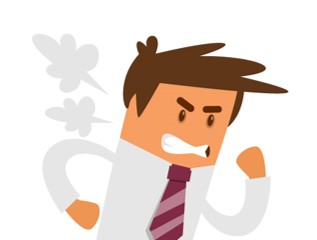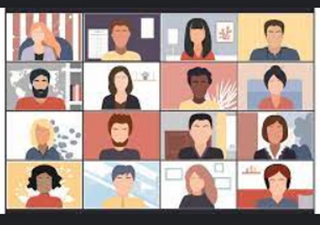
Anger
A wide range of influential authors agree that we are getting more and more angry; and research shows that this anger is linked with a range of physical, mental and social problems. For instance, chronic and intense anger has been linked with:
- higher rates of Coronary Heart Disease, stroke, cancer
- higher rates of common physical illnesses incl colds and flu
- increased risk-taking, poor decision-making and substance misuse
- lower levels of social support and higher stress levels
- less frequent use of positive coping strategies such as actively addressing problems. and
- increased probability of breakups or other problems in relationships
Anger has also been linked with mental health problems including higher levels of anxiety and fear; worry; and higher levels of depression. Anger is also associated with reductions in confidence, happiness, wellbeing and quality of life.
Yet it is highly treatable with CBT.

Prevalence
The Mental Health Organisation launched a report ‘Boiling Point‘ about how anger affects individuals, families and communities:
- almost a third of people polled (32%) say they have a close friend or family member who has trouble controlling their anger.
- more than one in ten (12%) say that they have trouble controlling their own anger.
- more than one in four people (28%) say that they worry about how angry they sometimes feel.
- one in five of people (20%) say that they have ended a relationship or friendship with someone because of how they behaved when they were angry.
- the majority of the population either strongly agree or agree that people in general are getting angrier.

Treatment towards better
People are struggling for the want of information and techniques to manage their feelings - information that is not routinely taught in families or schools. CBT can help by breaking problems into smaller parts and offering a range of tools and techniques so that individuals can troubleshoot themselves. The latter includes identifying and ultimately changing maladaptive thinking and thoughts.
Alongside, or prior to therapy selfcare can help i.e. lifestyle changes such as releasing pent up energy with exercise; cutting down on alcohol, stopping smoking and eating more healthily. Self-care and compassion are also vital because symptoms can improve when we look after ourselves, and treat ourselves with kindness, care and respect (see more information tab on DAKtivism for selfcare ideas).
CBT Supports for Anger: Group and 1-1
- Attend our low-cost, fun and informal Stress Busters community CBT course; attend for information and prevention if not support (stress is an umbrella word for lots of mood states incl anger.)
- Alternatively, access 1-1 CBT therapy via phone or video. Get in touch for a brief chat in confidence (FREE). From there you may be invited to have a 1-1 CBT assessment / getting-to-know-you session (90 mins) and then a course of CBT (5 sessions at a time).
- Stress Cafe is an optional follow-up booster session. It is open to those who have completed Stress Busters with us or our 1-1 CBT.




